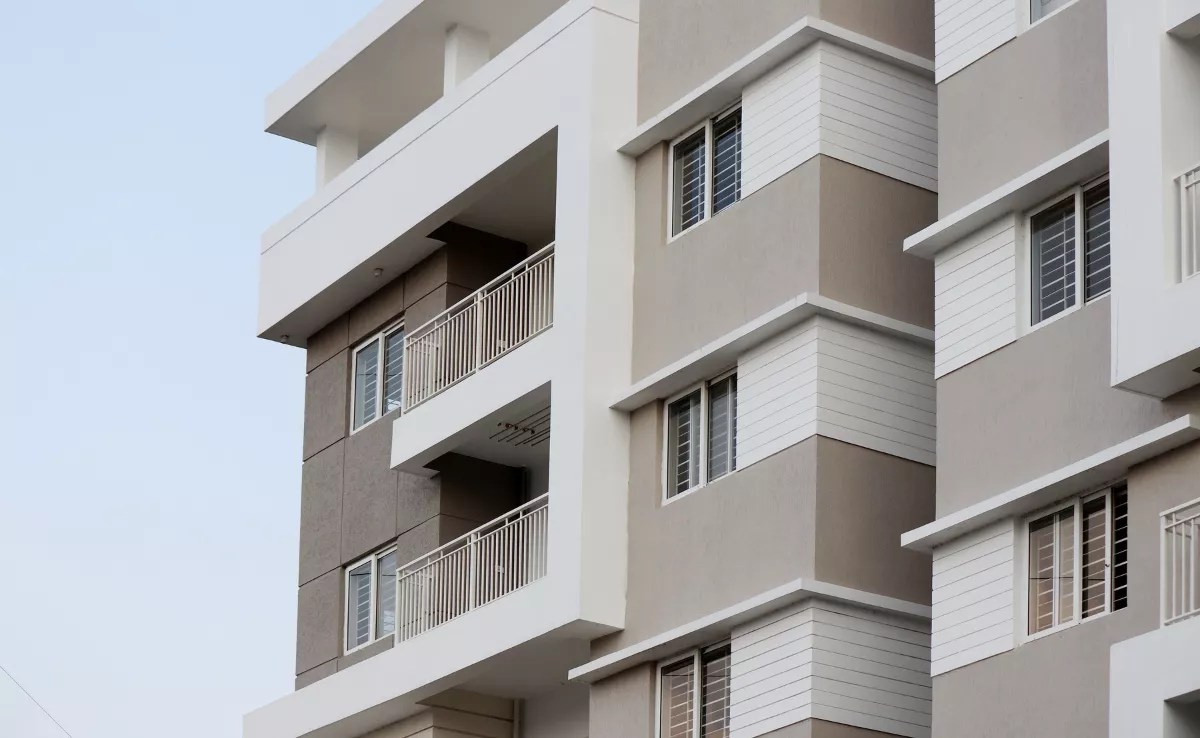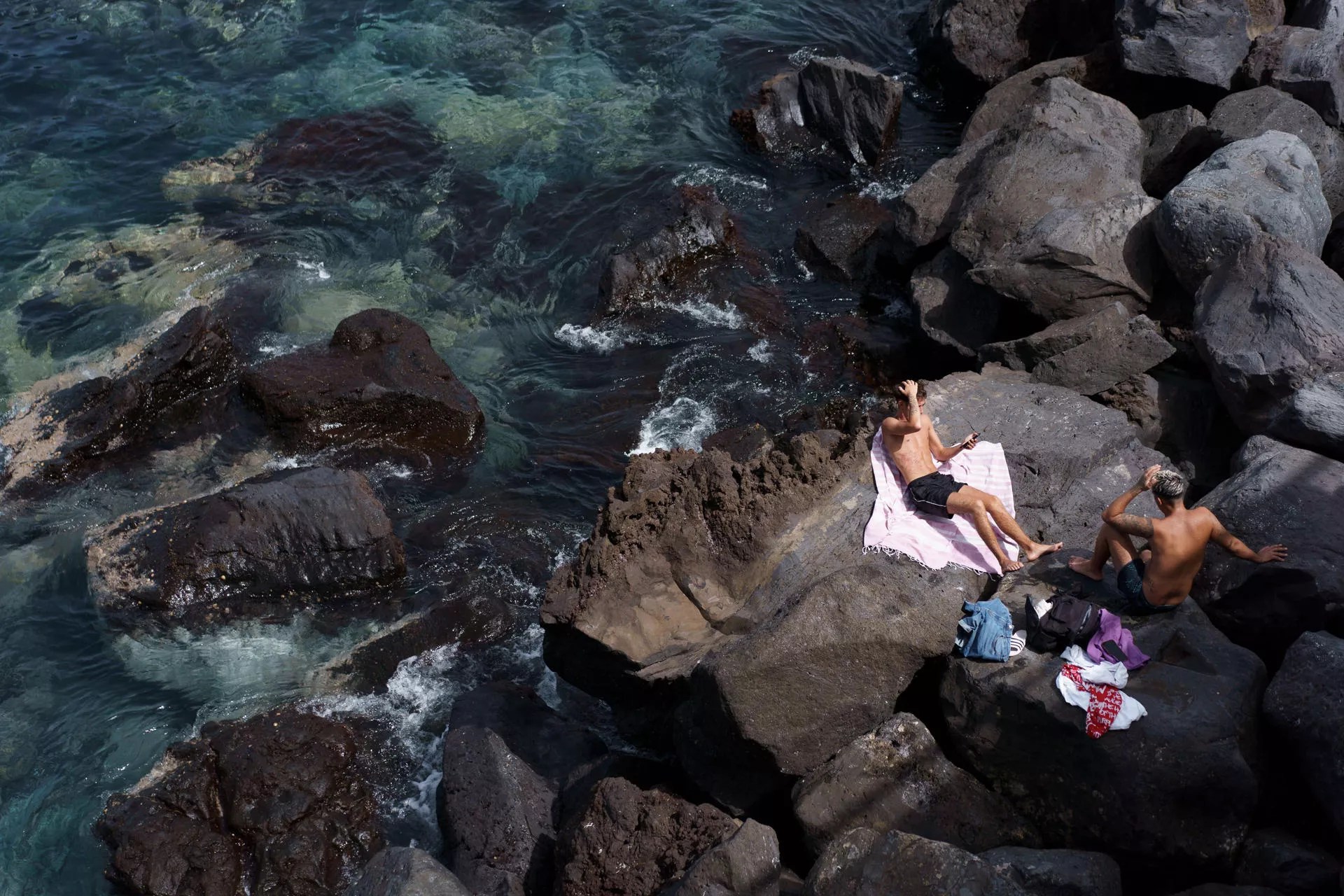A bridge that connects Tenerife with Colombia and vice versa. The percussion, pure essence of the rhythm that unites both shores of the Atlantic, and the Carnival as axes. It is the translation of the journey, personal and professional, of Unai Cañada and his drumming to meet those who make up what happens to be the best batucada on the planet. To learn. But, also, teach from the humility of a musically rich land.
Unai Cañada (1979, Bilbao) is the founder and alma mater of Bloko, a Tenerife collective focused on percussion. Parallel to this work, the figure of him as a vitalizing agent grows. Unai gradually forks from his particular creation, although always with the drum as the center. This is the meaning of his three-week trip to Colombia, to the heart of the batucada, from where he has just returned. He was invited by Homero Cortés, director and founder of Aainjaa, a group that happens to be the best on the planet in this field. There, within the framework of the traditional round-trip relationship of Canary Islands with the Latin American country, he brought the melodies from here. Among them, a tajaraste that was interpreted by more than a hundred drummers in one of the main squares of the capital, Bogotá.
Unai, Basque by birth and islander at heart – came to Tenerife at the age of 3 and has lived in the north ever since–, maintains the artistic direction and general coordination of Blokowhich today acts in the Santa Cruz Carnival, where it has become almost a classic. But “Bloko in three years will turn 18 and it’s time for him to get to work,” he says amused. In addition, he is no longer alone, as a team of five people shares the responsibility of a group that has grown considerably in its three decades of life.
Aainjaa combines the sound of drums with added body makeup and gestures for a unique effect. Always integrated into social work with the most vulnerable in the most depressed neighborhoods, especially young people, his professional side travels the world for seven months to show the best batucada repertoire. Including the typical rhythms of Colombia. Or those of special guests like Unai.
Cañada values the experience lived between January 14 and February 6 as “unique and spectacular.” He explains that “I did not go tourism, but to give classes with a total of 42 hours of workshop in three weeks, for about 400 people.” She emphasizes that «they work more on discipline and I move in the clown field. They received this way of understanding percussion with great emotion». There are similarities, such as “using art in the sense of a tool for social transformation.” But also differences. For example, she points out, “they work with children and adolescents, while we do it with people over 45, above all.”
Canarian rhythms surprise hundreds of people in the center of the coffee capital
Unai met Octavio Arbelaz, director of the Festival Maps of Puerto de la Cruz, at a Mueca festival in theater on the street that has replicas all over the world. Hand in hand with her, Bloko was in Costa Rica in 2017, specifically in the community of Tirrases, where, Unai explains, “even the country’s Minister of Culture put on the group’s shirt and played with us.”
A collective success that he now repeated individually in Colombia. Valora: «We have closed a four-year project with Octavio in Santa Fe (Antoquia), Drums for Coexistence. It will be developed by five Bloko members for 40 days a year between October and November.”
The founder of Bloko took his musical creations to the other side of the Atlantic “beyond the usual beats of Salvador de Bahía”. Among them he included a tajaraste. At a fair in Pinolere he coincided with the Sabinosa group, from El Hierro, heir to the great Valentina and whose members are “masters” in this rhythm, with more than four centuries of antiquity. With them he rehearsed the couplet.
In the Plaza de Lourdes, one of the main squares in Bogotá, more than a hundred drummers rumbled in unison under his direction in front of fifty enthusiastic spectators with a verse repeated during the 25-minute performance: «From Colombia and from ECA pa’ toa la earth, for the whole planet». ECA is the name of the headquarters of Aainjaa, the acronym for Space for Creation and Learning. Unai sums up that moment: “Aainjaa’s percussion gave the tajaraste enormous strength and tremendous life. I thank Homer for this wonderful opportunity.”
The bridge that unites
The initiative is a faithful reflection of the bridge that unites the Canary Islands with Colombia. There were canaries among the founders of the first cities. Families who had to leave their land due to the blood tribute, the imposition of the Spanish Crown on the Canary Islands, which forced five families to be sent to America for every hundred tons of merchandise carried by ships with island products. The ocean current took it directly to the Colombian Atlantic coast.
Unai recounts his experience: «The connection is noticeable from the moment one arrives. Even in the streets, because walking through some areas of Bogotá is the same as doing it through La Laguna. And, suddenly, you see a sign that says La Palma street ».
Unai recounted his life in Colombia. He will basically do the same this course in his new role as a university professor as a revitalizing agent, “one of the professions of the future,” he points out. With the endorsement of the universities of La Laguna and Las Palmas de Gran Canaria and the impulse of the Orbis Chair of Social Innovation, will teach two subjects with a suggestive name: Art as a tool for social transformation and Social value and purposes. Those were the fundamental factors that moved this “unforgettable” trip to unite the Canarian tajaraste with the Colombian batucada.
Bloko is already a classic in the Carnival of Santa Cruz
The drums of the Bloko come to their appointment with the Carnival of Santa Cruz de Tenerife. In double duty. Tomorrow, from twelve in the morning to six in the afternoon, in the Plaza de la Isla de la Madera, in the vicinity of the Guimerá theater. They will repeat the Piñata Saturday, in the same place and with the same schedule. Unai Cañada explains: «The reason for this year, the city of New York, discouraged us, because we did not know how to relate it to our claiming vein about justice, balance and equity; They do not occur in any city, but less in New York ». After a discussion, the idea arose, he points out, of “transmuting ourselves into a new self to inhabit the city again.” For this reason, he clarifies, “on Sunday we will be Bloko and next Saturday, New Me.” He emphasizes that “when the reason was the sea we cleaned up the garbage on the coast.” Bloko was born in 2010 and in 2018 he abandoned his initial surname, del Valle. Unai argues: «It is a sign of identity. In Brazil there are 500 blokos and here, one”. His participation in the Carnival has given him popularity, but Bloko “is much more,” Unai values. From solidarity in Kenya, Cape Verde or Costa Rica to workshops and schools on the Island, with attention to groups such as the elderly or people with disabilities. | JDM

















